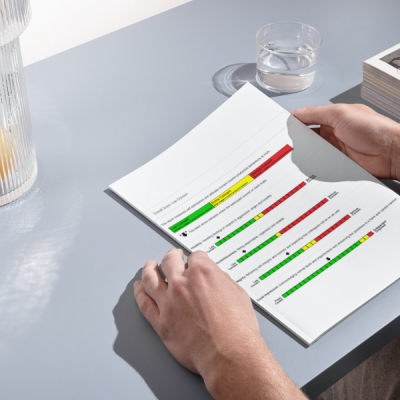Who has time for due diligence when you need to fill a shift?
12 Sep 2022Where did all the people go?
One of our employees is travelling around Australia with her family and their caravan. Despite borders reopened and tourism booming, she’s noticed one central theme across the states and across sectors: staff shortages. Many local businesses, small and large, have signs listing their vacancies and apologising in advance for reduced service capacity. Fast-food chains offer only drive-through orders as dining-in is no option without staff.
Although this central theme is not new to the care sector, it is exacerbated by these shortages in other sectors. And not just for care staff. Care staff recruiters are also in high demand. And the answer to the question: Where did all the people go? is one with many facets and difficult to quickly address.
The need for speed
As a result, we’re seeing sheer desperation for care staff and the pressure on recruitment teams and managers to fill vacancies is an ever-building crescendo. But with pressure comes risks. The need for speed to snap up any available care staff is a slippery slope to hasty hiring decisions. We’re seeing organisations using fewer reference checks, removing additional screening or going from one (video) interview straight into sending a contract. Although speed-to-hire is important, preventing hiring mistakes remains critical, as the cost of a hiring mistake is not only front-loaded but continues to ripple long after the bad hire has been dismissed.
Research by Robert Half[1] finds that a bad hire can cost an employer between 15%-21% of that employee’s salary, with the extent of the impact depending on the industry and seniority of the role. They furthermore found that 61% of employers have settled for a candidate that did not sufficiently match the job role, ultimately hindering growth and incurring additional costs to the organisation.
Reasons to keep psychometric assessments
It might be tempting to drop behavioural or psychometric assessments from your recruitment process, but before doing so, let’s consider the following:
- Psychometric assessments give you insights into aspects of a candidate that are hard to gauge during other stages of your recruitment process – such as workstyle and counter-productive work behaviours. Can you afford to miss out on this knowledge?
- Along this line, our Care Advantage Attitudes assessment specifically, identified a Serious Risk in one or more counter-productive work behaviours in 94% of the cases of care employees who were assessed and later given a prohibition order for work in care. Contact us for the case study.
- If you’re considering hiring “green skins” from other sectors, behavioural assessments give you insight into someone’s suitability for a job in care based on their personality. Put this hidden talent through care training and offer them a job when finished. Because skills can be taught.
- Every part of the recruitment process can be exaggerated or faked by the candidate and it’s estimated that 40% of people lie in their resume[2]and another 45% of candidates admit not having been fully honest in an interview[3]. There are even companies that provide professional reference faking services[4]! Behavioural and psychometric assessments can also be exaggerated, however, for many assessments, the report will tell you if this indeed was the case.
How to use behavioural assessments without losing speed to hire?
Balancing the need for speed and the need for informed hiring decisions can be tricky and a level of flexibility is required in a candidate-scarce market. Here are some tips.
- Use the behavioural assessments as the first point of call for screening. Automate this process by creating an auto-reply email or text that a job applicant receives shortly after they submitted their application. Include a nice message and the invite to complete the short assessments. Don’t forget to mention that the applicant receives a free report when finished (if relevant)! This way the applicant will feel like they’ve already made it through to the next stage of your recruitment process and stays engaged with your organisation until you’re ready to further process their application. Secondly, it will also weed out those so-called tire-kickers; job applicants who are not really interested in a job. Lastly, this way you see upfront who has the heart for care but lacks the skills, so you can train them internally.
- For hard-to-fill roles, it might be best to get the job applicant on the phone first and build a relationship with them. This is a great opportunity to then also advise the candidate that a behavioural assessment is part of the recruitment screening process, why this is the case and “what’s in it for them” (the free report).
- When booking the interview with the candidate, advise that a quick psychometric assessment is part of the process and ask them to complete the questions before the interview, so that the results can be considered and discussed. Include the link to the assessment in the meeting invite message. Two birds, one stone.
Care Advantage can help organisations get insight into personality traits, characteristics and values of their job applicants. Invaluable information for hiring decisions. By using behavioural assessments, you’re setting an identical standard and a structured approach to gathering information about your potential hires, compared against a benchmark of high performers in the same job type. The assessment results can help organisations, screen in hidden talent and screen out potential hiring risks. Care Advantage benchmarks are developed by occupational psychologists, set for Australian and New Zealand norms, specifically for the health care and social assistance sectors.
If you’re interested in exploring the world of behavioural assessments and would like to know more about Care Advantage, get in touch with us at info@careadvantage.com.au.
[1] https://www.roberthalf.com.au/press/rising-costs-bad-hire
[2] https://www.indeed.com/career-advice/resumes-cover-letters/what-happens-if-you-lie-on-your-resume
[3] https://www.seek.com.au/employer/hiring-advice/how-to-tell-when-a-candidate-is-lying
[4] https://www.pursue.ly/professional-references





